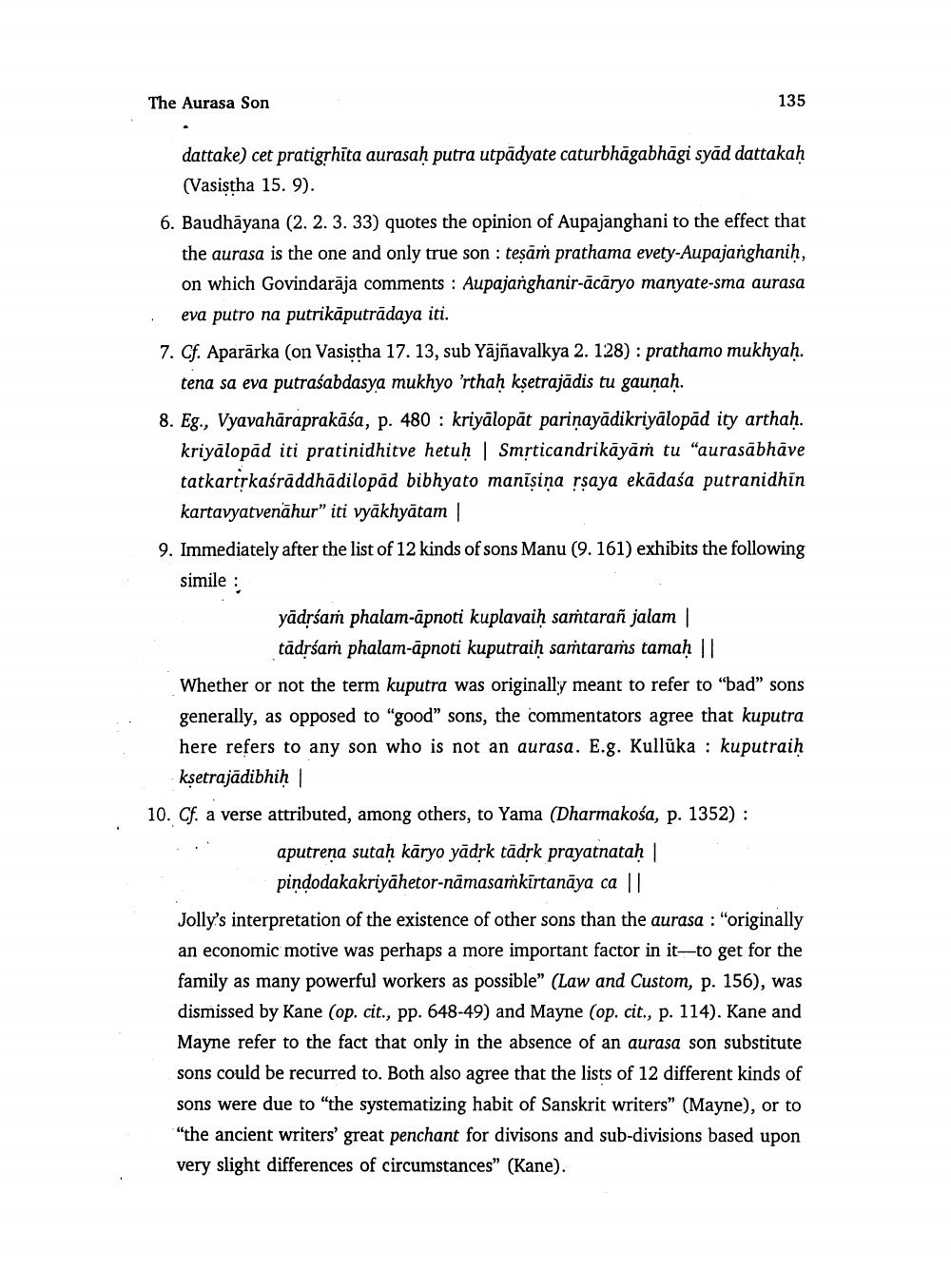________________
The Aurasa Son
135
dattake) cet pratigrhīta aurasah putra utpādyate caturbhāgabhāgi syād dattakaḥ
(Vasistha 15. 9). 6. Baudhāyana (2. 2. 3. 33) quotes the opinion of Aupajanghani to the effect that
the aurasa is the one and only true son : tesam prathama evety-Aupajanghanih, on which Govindarāja comments : Aupajanghanir-ācāryo manyate-sma aurasa
eva putro na putrikāputrādaya iti. 7. Cf. Aparārka (on Vasistha 17. 13, sub Yājñavalkya 2. 128) : prathamo mukhyaḥ.
tena sa eva putraśabdasya mukhyo ’rthaḥ kṣetrajādis tu gaunah. 8. Eg., Vyavahāraprakāśa, p. 480 : kriyalopāt parinayādikriyalopād ity arthah.
kriyālopād iti pratinidhitve hetuḥ | Smsticandrikāyām tu "aurasābhāve tatkartrkaśrāddhādilopäd bibhyato manīsiņa rsaya ekādaśa putranidhin
kartavyatvenāhur” iti vyākhyātam 9. Immediately after the list of 12 kinds of sons Manu (9. 161) exhibits the following simile :
yādrśam phalam-āpnoti kuplavaih samtaran jalam tādrśaṁ phalam-āpnoti kuputraiḥ saṁtaraṁs tamaḥ ||
Whether or not the term kuputra was originally meant to refer to "bad" sons generally, as opposed to "good" sons, the commentators agree that kuputra here refers to any son who is not an aurasa. E.g. Kullūka : kuputraiḥ
ksetrajādibhiḥ 10. Cf. a verse attributed, among others, to Yama (Dharmakośa, p. 1352) :
aputrena sutaḥ kāryo yādrk tādrk prayatnatah |
pindodakakriyahetor-nāmasamkīrtanāya ca 11 Jolly's interpretation of the existence of other sons than the aurasa : "originally an economic motive was perhaps a more important factor in it-to get for the family as many powerful workers as possible" (Law and Custom, p. 156), was dismissed by Kane (op. cit., pp. 648-49) and Mayne (op. cit., p. 114). Kane and Mayne refer to the fact that only in the absence of an aurasa son substitute sons could be recurred to. Both also agree that the lists of 12 different kinds of sons were due to "the systematizing habit of Sanskrit writers” (Mayne), or to "the ancient writers' great penchant for divisons and sub-divisions based upon very slight differences of circumstances" (Kane).




